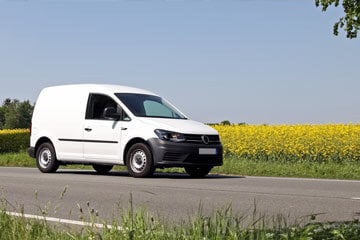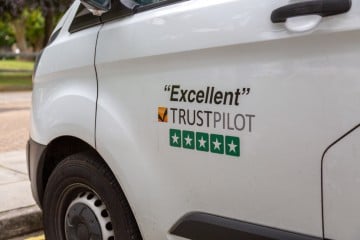"Understanding insurance groups can help explain the price of insurance and how companies measure the risk of each make and model of van. If you’re looking to buy a van or change your current one then knowing what group your van falls into could help you find cheaper van insurance costs."
What are van insurance groups?
Insurance groups are a way for insurers to see the relative risk of a particular van model. Motor safety organisation Thatcham Research creates these groups and passes them on to the Association of British Insurers (ABI).
Every van is associated with one of these insurance groups. The higher the group, the bigger the risk the van poses. This usually means higher van insurance costs.
There are 2 sets of van insurance groups, depending on how old the van is:
- If the van was made before 1 January 2016, you'll see groups 1-20
- If the van was made after 1 January 2016, you'll see groups 21-50
When you get a van insurance quote with us, we don't ask you about your van's insurance group. That's because we get that information automatically when you enter your van's reg plate.
Are van insurance groups the same as car insurance groups?
No. Although the basic idea is the same - Thatcham Research and the ABI create groups based on risk - they're slightly different.
Car insurance groups go from 1-50, where group 1 is the cheapest and group 50 is the most expensive.
Van insurance groups go from 1-20 and 21-50. A van in insurance group 21 is the cheapest group for vans made after 2016. And group 20 is the most expensive group for vans made before 2016.
How can I save more on my van insurance?
Along with driving a van in a lower insurance group, there are many other ways to save on your van insurance, whether your van is for private or business use. You can see more ways in our guide but here are some ideas we can help you with to get your price down.
- Don’t auto renew - shop around
- Consider your optional extras
- Pay for your policy annually instead of monthly
- Buy your policy at the right time
- Don’t auto renew - shop around: Don’t accept your renewal; even if it’s cheaper than last year - you could save even more by comparing quotes. This is one of the easiest things you can do with often the biggest saving.
- Consider your optional extras: Optional extras can often increase the price, so think about what you need or actually want before buying. For example, could you get cheaper breakdown cover as a standalone policy, or do you have a joint policy with a partner or family member?
-
If you can, paying annually is always cheaper than choosing to pay monthly. By cutting out the interest on a monthly policy, customers save on average 15%1 by paying in one go.
-
Buy your policy at the right time: Being organised when you buy your policy could get you a better price. According to our data, customers who buy 19 days2 before their insurance is due see the cheapest prices.
1,2Based on Confused.com data May - June 2023.







